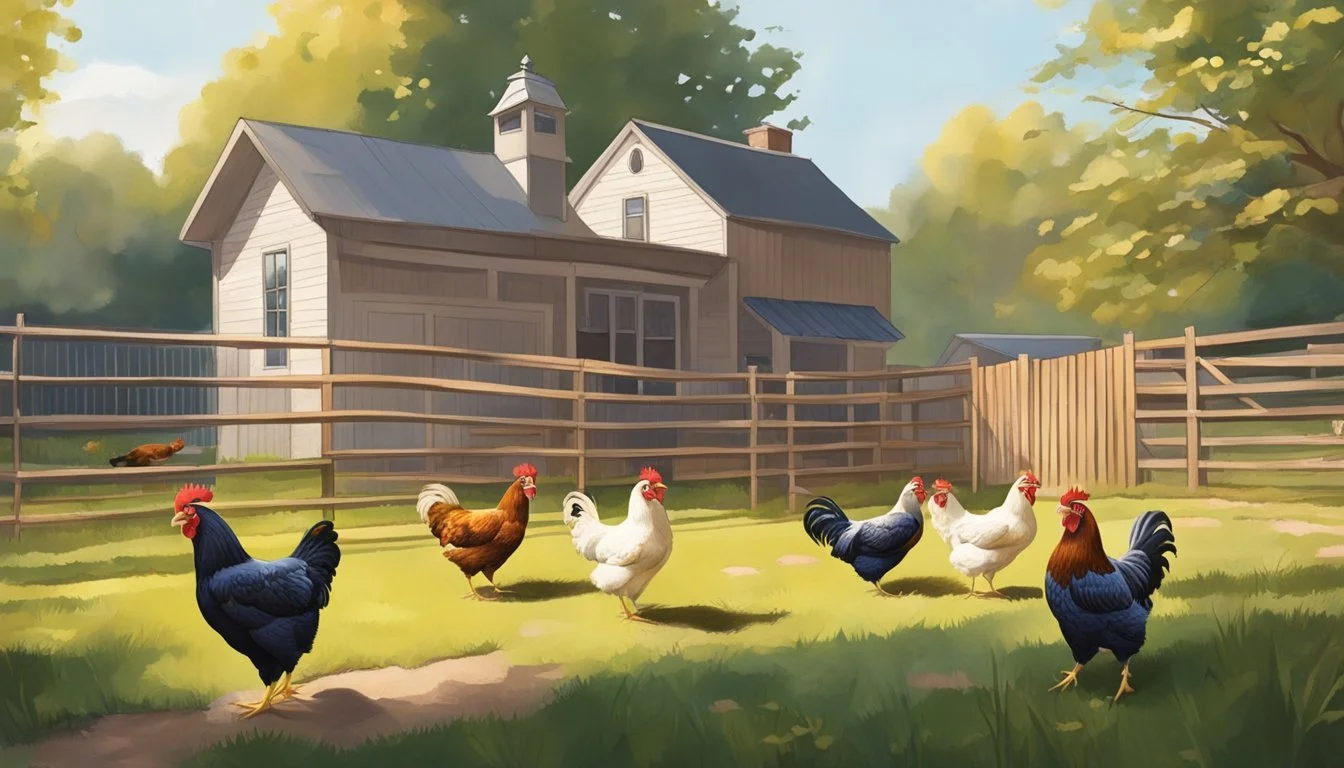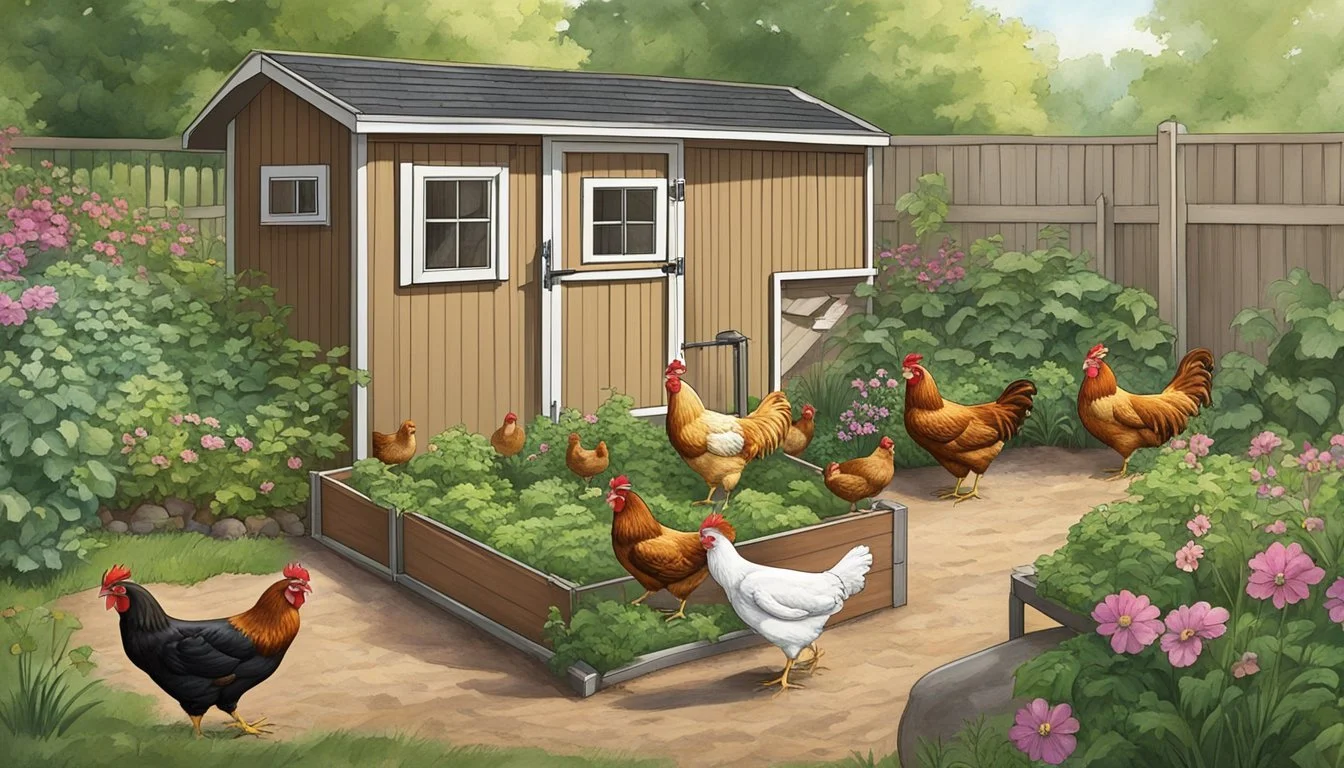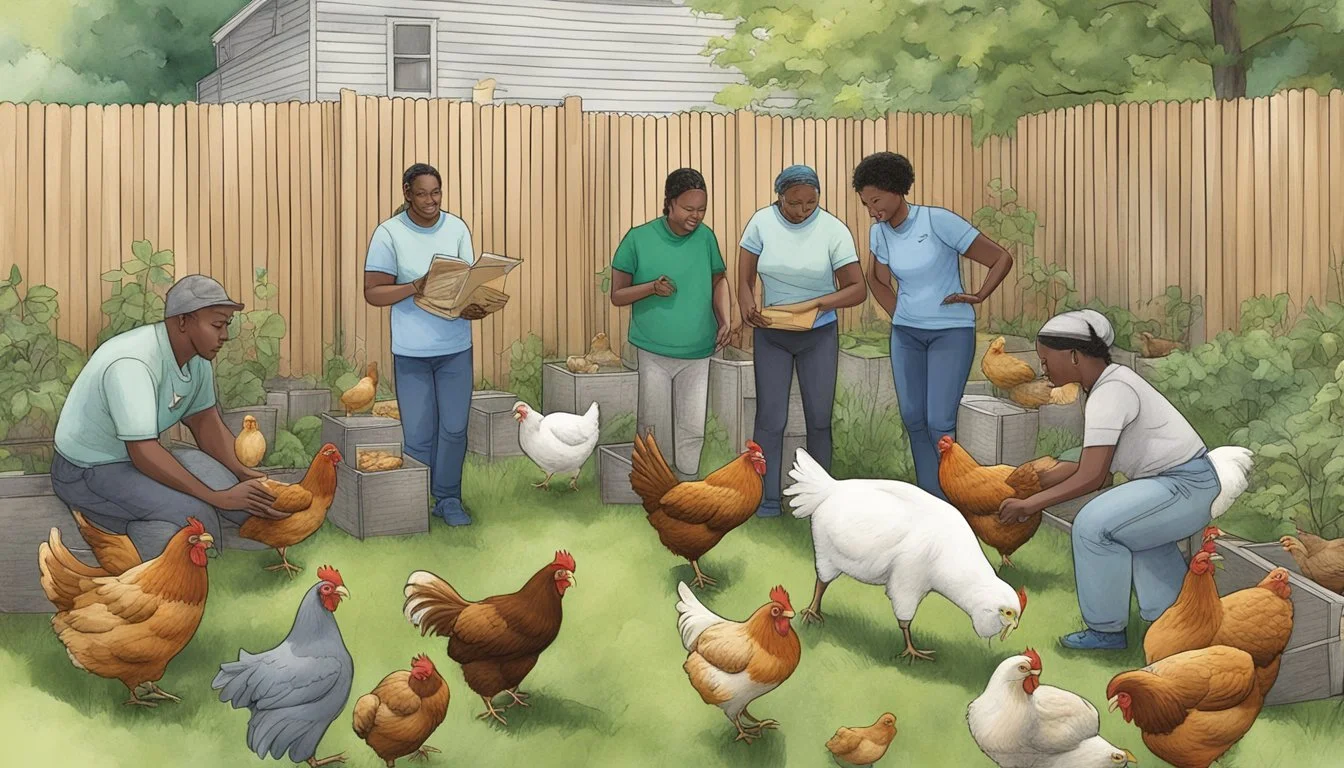Keeping Backyard Chickens in Saint Paul, MN
Essential Tips for Urban Poultry Farming
Keeping backyard chickens has become a popular practice among residents in Saint Paul, Minnesota, providing benefits such as fresh eggs, natural pest control, and the pleasure of caring for animals. The city has established ordinances to regulate this activity, ensuring that it is done in a manner that is considerate of neighbors and compliant with local laws.
In Saint Paul, individuals interested in backyard chicken keeping must obtain a permit which specifies the number of hens allowed. There are two categories of permits based on the flock size. Tier One permits authorize residents to keep between 1-6 hens, while Tier Two permits are required for 7-15 hens. To secure a permit, applicants are required to submit an application, a site plan, and fulfill additional stipulations such as notifying adjacent neighbors.
The city's approach aims to integrate urban agriculture into the residential landscape responsibly, reflecting a broader trend towards sustainability and locally-sourced food. As urban homesteading becomes more prevalent, municipalities like Saint Paul are adapting, demonstrating that with proper regulation, urban and rural lifestyles can coexist harmoniously.
Understanding Local Ordinances
Before venturing into backyard chicken keeping in Saint Paul, MN, it's essential to be well-versed with the city's specific regulations and the application process for required permits. Knowing the rules for inspections, compliance, and maintaining positive neighbor relations will ensure a smooth chicken-keeping experience.
Saint Paul Specific Regulations
In Saint Paul, Minnesota, specific ordinances govern the number of chickens a resident can keep. Residents are allowed to keep chickens, but roosters are prohibited. The chicken ordinance specifies two permit tiers based on the number of chickens:
Tier One: 1-6 chickens
Tier Two: 7-15 chickens
The city does not permit more than 15 chickens per household.
Chicken Keeping Laws and Application Process
The application for a Backyard Chicken Keeping Permit is obligatory, as stated in St. Paul Legislative Code §198. Applicants must submit:
An application form
A site plan
A petition signed by 75% of neighbors within 150 feet on the same side of the street
Payment of the initial cost and annual renewal fee
The initial cost for a Tier Two Permit is $76, and the renewal fee is $28.
Inspections and Compliance
The Department of Safety and Inspections (DSI) conducts inspections to ensure that chicken keepers comply with coop restrictions and care requirements. Failure to meet the Minnesota chicken ordinances can lead to fines and revocation of the permit.
Neighbor Relations and Dispute Resolution
Maintaining favorable relations with neighbors is crucial when keeping backyard chickens. In case of disputes, city officials or the Animal Control Center can be contacted for resolution. Residents can reach the Animal Control Center at their phone number: (651) 266-1100. The petition requirement during the application process helps establish community support and mitigate potential issues.
By adhering to these local laws and requirements, prospective chicken keepers in Saint Paul can create a responsible and community-friendly backyard chicken environment.
Setting Up Your Coop
When setting up a coop in Saint Paul, MN, residents must consider the type of coop suitable for their flock and adhere strictly to maintenance practices to ensure the health and safety of their backyard chickens.
Choosing the Right Coop
Selecting the proper coop is crucial as it directly impacts the wellbeing of the backyard chickens. The coop must provide sufficient space for the number of chickens allowed; Saint Paul permits up to 15 chickens per household. Each chicken requires at least three to four square feet of coop space for optimal health and comfort. Additionally, the coop design should protect chickens from weather extremes and predators. Features such as sturdy locks and reinforced wire mesh can offer additional security.
Space Requirements: 3-4 square feet per chicken.
Protection: Durable locks, reinforced wire.
Ventilation: Proper air circulation.
Insulation: Appropriate for Minnesota's climate.
Coop Maintenance and Upkeep
Regular maintenance ensures a clean, safe environment for backyard chickens and the community. Coop cleaning should be done frequently to prevent the buildup of droppings and reduce the risk of disease. A routine also includes checking for structural damage and ensuring that food and water sources are clean and replenished as needed. In Saint Paul, residents must comply with coop restrictions, which include maintaining the coop in a sanitary condition free from odors and pests.
Cleaning: Remove droppings, refresh bedding, sanitize water and food containers.
Inspection: Check for damage, signs of wear and tear.
Food and Water: Keep supplies uncontaminated.
Pest Control: Regularly check for and address any pest issues.
Proper coop maintenance and upkeep play an essential role in the health of backyard chickens and contribute to a harmonious urban farming experience.
Chicken Care and Management
Proper care and management are critical for raising healthy backyard chickens in Saint Paul, MN. Ensuring daily needs are met, monitoring health and wellness, and understanding egg production are essential components for success.
Daily Care and Feeding
Chickens require consistent access to fresh water and a balanced diet to thrive. Providers should offer a mix of layer pellets and grains, complemented with kitchen scraps for variety. It's important to maintain a clean water source to prevent the spread of illnesses.
Food: Layer pellets, grains, occasional kitchen scraps
Water: Fresh and clean, available at all times
Health and Wellness
Backyard poultry keepers must be vigilant for signs of illness, such as lethargy, respiratory issues, or a decrease in egg production. Diseases like salmonella can affect both chickens and handlers, making hygiene practices like regular handwashing critical.
Signs of Illness: Lethargy, respiratory issues
Hygiene: Frequent handwashing, coop cleaning
Egg Production
Hens typically begin laying eggs at around six months of age and prefer a quiet, dark, and secure space for this purpose. Regular collection of eggs reduces the risk of breakage and maintains cleanliness, promoting a continuous supply of organic eggs from backyard chickens.
Egg-Laying Age: Approximately six months
Collection: Regular to maintain egg quality and coop cleanliness
Rules on Roosters
In Saint Paul, Minnesota, specific regulations govern the keeping of roosters within the city limits to ensure neighborhood peace and animal welfare.
Roosters Permitted?
No. Keeping roosters is explicitly prohibited in the city. Residents are allowed to keep female chickens only, as roosters are known to cause noise disturbances which can lead to complaints from neighbors. This restriction is a part of the city's broader legislation on backyard chicken keeping.
Handling Complaints and Legalities
If a resident violates this regulation by keeping roosters, complaints can be filed with the local Animal Control authorities. Enforcement of the law includes an inspection process and potential legal repercussions for non-compliance. It is crucial for residents to understand these requirements as part of responsible animal ownership and community relations.
Community and Education
Within the city of Saint Paul, those interested in backyard chicken keeping will find an array of tools and programs tailored to educate both adults and children on proper practices. These initiatives aim to foster a well-informed community, ensuring adherence to local laws while promoting public health and safety.
Local Resources and Support
City/organization contact: The Saint Paul Animal Control unit is the primary contact for aspiring backyard chicken owners. They provide essential information on the city's chicken laws through their website and can also be reached at 651-266-1100 or via email through the DSI Message Center.
For residents eager to start their backyard poultry journey, Saint Paul requires a permit. The community offers educational events and courses that fulfill this need. For example, the Saint Paul Public Schools Community Education program holds classes addressing various topics like chicken breeds, nutrition, and housing. Participants may even receive a certificate recognized by the municipality as a prerequisite for owning chickens. Enthusiasts can explore these and other resources by visiting the city's official website or reaching out to the relevant departments directly.
Local chicken forum: Residents can engage with fellow chicken keepers by joining local online forums or community groups. These spaces provide a platform for sharing personal experiences, tips, and advice on raising backyard chickens within the unique context of Saint Paul's urban setting.
Public Health and Safety Education
Understanding the responsibilities associated with keeping backyard chickens is crucial for public health. The city provides educational material emphasizing handwashing and proper coop maintenance to prevent the spread of diseases, such as salmonella. It's important for potential owners to recognize that poultry can carry pathogens; thus, educating all household members, including children, is vital for a safe environment.
Educational resources available to the public highlight key safety protocols. They demonstrate proper care techniques from feeding to coop cleaning. These guidelines help ensure that residents maintain a healthy flock while minimizing the risk of disease transmission to humans.
For detailed information on keeping backyard chickens and relevant educational material, Saint Paul residents can access a link for more information provided by the city or attend local community education courses. These resources prioritize making sure residents are informed on every aspect of urban chicken keeping, from legalities to day-to-day care.
Additional Provisions and Resources
The City of Saint Paul provides current guidelines and assistance for residents interested in backyard chicken keeping. Staying informed about the latest ordinances and knowing where to seek help ensures compliance and successful poultry management.
Updates and Additional Information
The city periodically updates its regulations regarding backyard chicken keeping. It's essential for residents to stay current with these updates to maintain compliance. The City of Saint Paul's website often serves as the central hub for this information. Residents can find the most up-to-date resources and guidelines at the following URL:
For additional information and understanding of local provisions beyond the city limits, Minneapolis residents may need to consult their local government resources, as regulations may differ.
Contact and Support
If residents require assistance or have specific inquiries about backyard chicken keeping in Saint Paul, they can reach out to Saint Paul Animal Control Center. The center provides support and can help clarify any confusions regarding keeping chickens, permits required, and prohibited animals such as roosters and certain exotic pets. For immediate assistance:
Phone:
651-266-1100Email:
DSI-MessageCenter@ci.stpaul.mn.us
For general questions, residents may find it useful to contact their local Animal Control office. This department has dedicated personnel knowledgeable about urban poultry farming and is equipped to assist with both standard and unique situations that may arise from keeping backyard chickens.
Conclusion
Residents of Saint Paul, MN, are part of a community that supports urban agriculture, particularly the practice of keeping backyard chickens. Those interested in this endeavor must comply with city regulations to maintain harmony and public safety.
The city mandates that residents secure a permit to keep chickens, establishing clear guidelines to ensure responsible management. There are two tiers for permits:
Tier 1: Allows for 1-6 chickens
Tier 2: Allows for 7-15 chickens
In addition to the permit, a building and/or electrical permit may be necessary if the chicken coop exceeds 200 square feet or uses electricity.
An essential step in the permitting process is neighbor notification. Residents are required to inform their adjacent neighbors in writing about their intention to keep chickens. This practice promotes transparency and takes into account the interests of the entire neighborhood.
Lastly, those with permits should not forget the annual renewal fee, which is $16 at the time of writing, supporting the ongoing management and enforcement of these regulations.
By following these rules, residents contribute to a growing movement of urban poultry keeping, while ensuring that it does not disrupt the local community.








